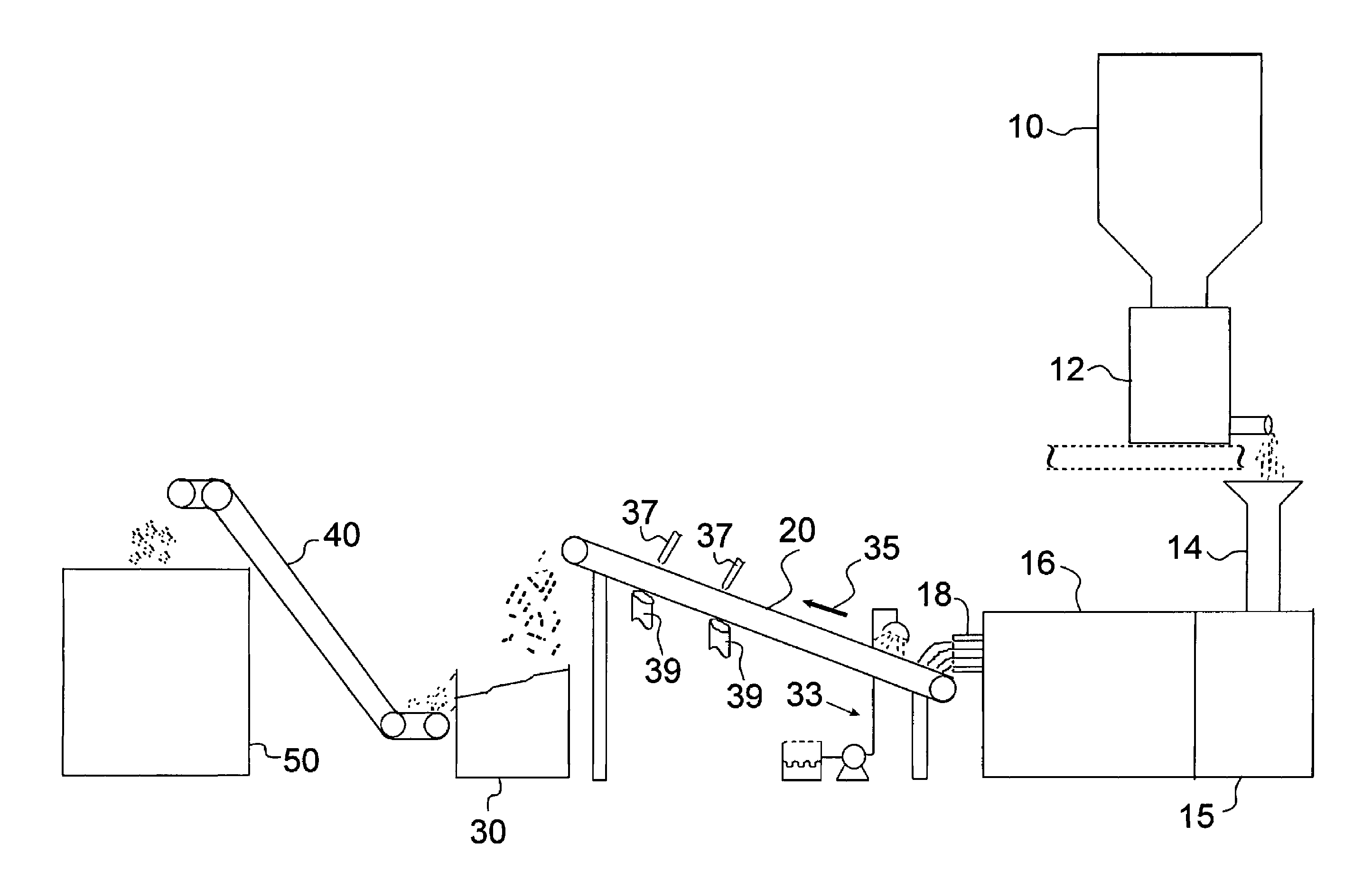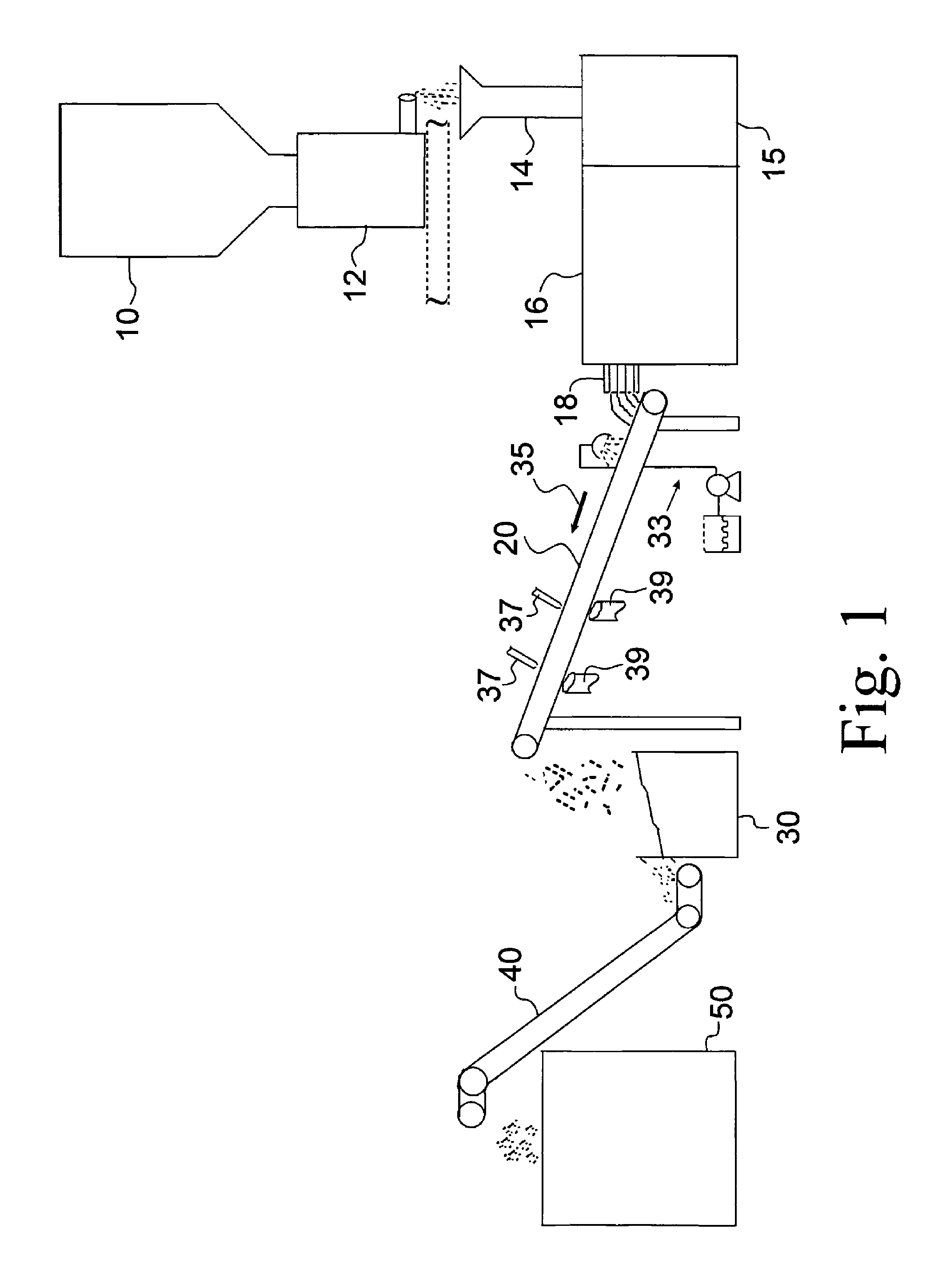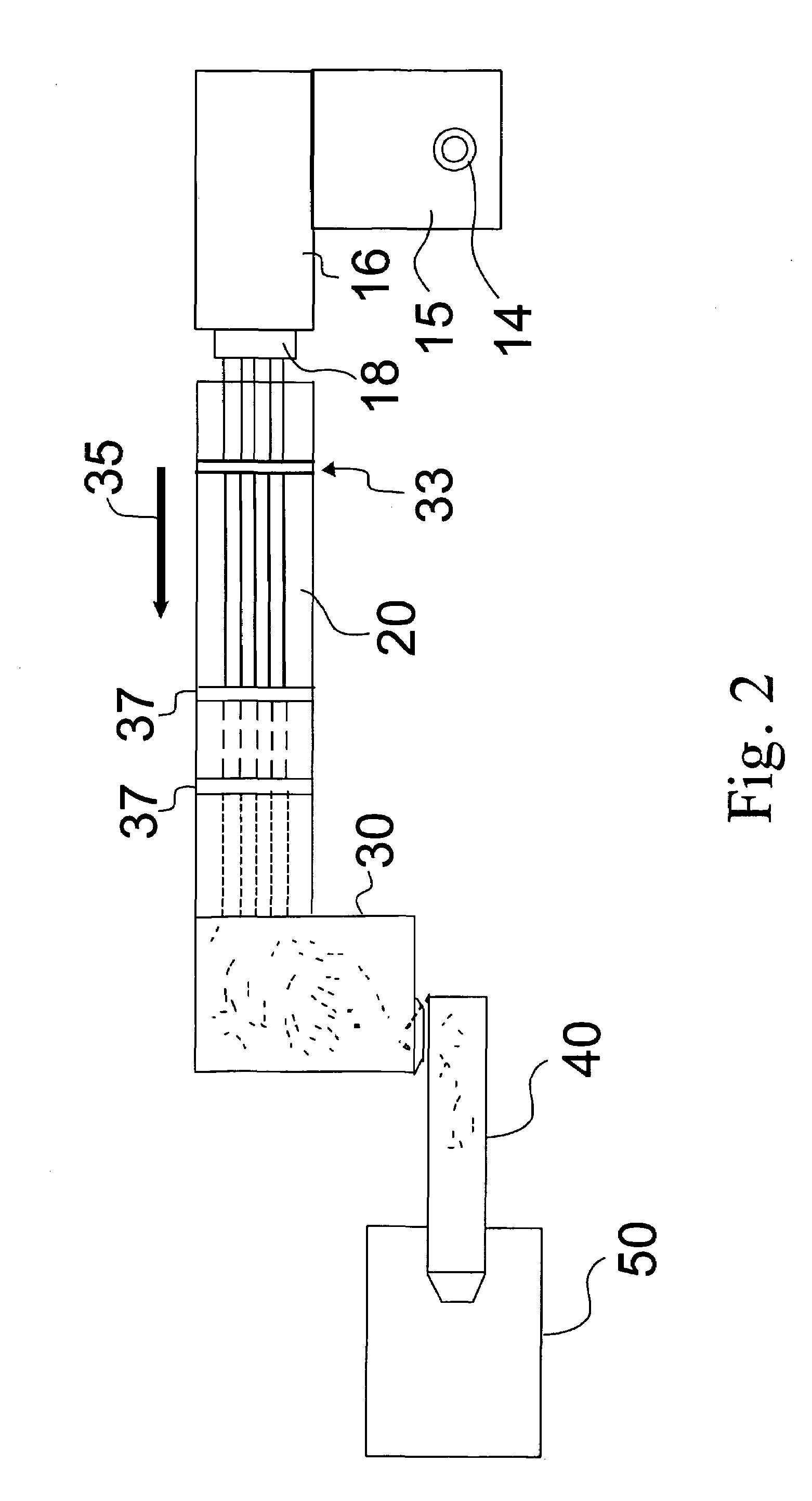Pelletized brominated anionic styrenic polymers and their preparation and use
a technology of brominated anionic styrenic and polymer, which is applied in the field of pelletized brominated anionic styrenic polymers and their preparation and use, can solve the problems of unsuitable conventional pelletizing procedures for producing brominated anionic styrenic, unsatisfactory consumer experience, and use of binding agents or other extraneous materials to maintain the integrity of flame retardant in pelletized form
- Summary
- Abstract
- Description
- Claims
- Application Information
AI Technical Summary
Benefits of technology
Problems solved by technology
Method used
Image
Examples
example 1
[0064]The excellent results achievable pursuant to this invention, were demonstrated in an operation in which a system as schematically depicted in FIGS. 1 and 2 was used, In such system, the following equipment was used:[0065]a) The extruder system was a 140 mm Buss Ko-kneader 15 having an L / D of 11 / 1 (but which can be 7.1 or greater) fitted with crosshead extruder 16. The screw profile of the kneader contained kneading elements.[0066]b) Die 18 was a 20-hole die with holes of 4 mm diameter.[0067]c) Conveyor belt 20 was a Scheer-Bay conveyor having a length of 14 feet (ca. 4.3 meters), a width of 15 inches (ca. 38.1 cm), and 3-inch (ca. 7.6-centimeter) diameter rollers. The mesh belt was upwardly inclined at an angle of about 12°.[0068]d) Classifier 30 was a Witte model no 200 Classifier.
The vertical distance between the drop from the end of belt 20 to the top of classifier 30 was about 24 inches (ca. 61 cm), and the vertical distance between the end of transfer device 40 and the bo...
example 2
[0075]The same equipment, operating conditions, and sample evaluation as in Example 1 were used except that the Buss Ko-kneader and the crosshead extruder were replaced by a 90 mm twin screw compounding extruder which is a co-rotating intermeshing twin screw extruder Model no. ZSK-90 manufactured by Werner Pfleiderer. This extruder was operated at a rate of 1200 lbs / hr (ca. 543 kilograms / hour) with a temperature profile of 220-240° C. In this operation the samples were taken periodically during an operation period of 4 hours. Table 2 summarizes the results of this operation.
[0076]
TABLE 2Sam-Melt% Retained% Retained% Finesple%FlowononPassing ThroughNo.VolatilesIndexNo. 5 SieveNo. 40 SieveNo. 40 Sieve10.275.64.195.90.020.19—3.196.30.630.046.92.796.90.440.08—3.596.00.450.07—6.792.40.960.047.02.797.10.27——4.495.20.380.048.68.391.30.39——4.894.11.1100.04—4.295.20.7110.066.31.698.00.4120.04—3.296.40.4130.046.91.798.00.3140.04—4.995.10.0150.06—3.495.40.0160.067.42.297.10.7170.04—3.296.41.01...
PUM
| Property | Measurement | Unit |
|---|---|---|
| melt flow index | aaaaa | aaaaa |
| melt flow index | aaaaa | aaaaa |
| melt flow index | aaaaa | aaaaa |
Abstract
Description
Claims
Application Information
 Login to View More
Login to View More - R&D
- Intellectual Property
- Life Sciences
- Materials
- Tech Scout
- Unparalleled Data Quality
- Higher Quality Content
- 60% Fewer Hallucinations
Browse by: Latest US Patents, China's latest patents, Technical Efficacy Thesaurus, Application Domain, Technology Topic, Popular Technical Reports.
© 2025 PatSnap. All rights reserved.Legal|Privacy policy|Modern Slavery Act Transparency Statement|Sitemap|About US| Contact US: help@patsnap.com



